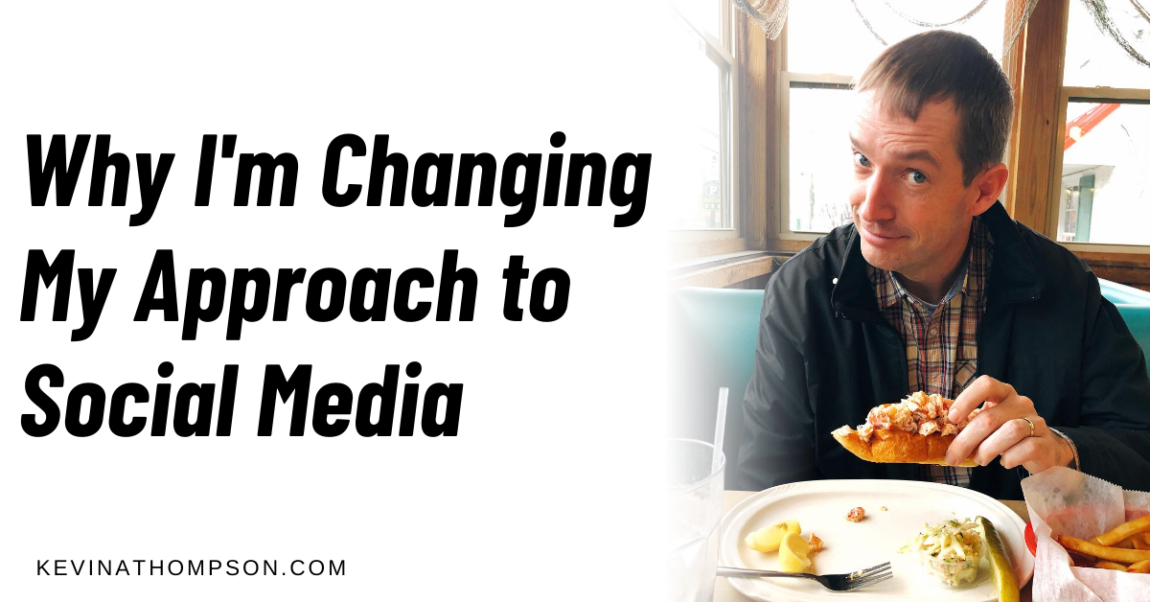I’ve always struggled to know how to handle the comments.
When I first started writing on this website in 2013, it was generally easy to know what to write about and what to avoid. Generally speaking, I wanted to promote a Biblical perspective on issues of everyday life–marriage, parenting, leadership, etc. I also greatly enjoy writing about current events, but only when I feel as though I might have a different angle than what others might have. Rather than assuming our first thoughts are Biblical, I enjoy taking the time to consider how various Scriptures might impact our perspective on a current event.
The articles were easy.
The comments were difficult. (See: Reflections, Regrets, and Responses to 1,000 Articles)
Every article is shared on social media and with those shares come interactions. Questions are raised. Additional points are raised. Disagreements are voiced. All of that is good and enjoyable. For me, social media has always been about the interactions. I enjoy conversation and differing perspectives.
But one thing I have never known how to handle are the comments that go from a question or point into a back and forth discussion. Specifically, what should I do when someone gets angry or offensive?
Some would say ignore them. It’s an understandable approach. Yet the problem with ignoring things said on social media is that it becomes easy for people to wrongly assume you agree with those things. And if we intentionally withdraw from the conversation, it will leave a vacuum that will be filled by those who are angry or biased or promoting a wrong understanding of Christianity. In part, I have responded in order to let the readers (not the one actually commenting) know there is another approach to faith that is not angry, bigoted, racist, closed-minded, etc. (See: 5 Types of People You Should Ignore)
So I have said engage them. Don’t get angry or petty. Don’t return evil for evil. Instead, I’ve tried to engage in conversation with those who have engaged me. I’ve attempted to understand the ideas of others and nudge people toward what I believe is a Biblical approach to difficult topics. And most of those conversations have been great. I’ve learned things, better understood others, and made great friends even with people with whom I disagree. But on a few occasions, the conversations have gone off the rails. Feelings have been hurt, relationships broken, and hearts misunderstood.
It hasn’t worked as I had hoped. (See: How to Argue Less and Love More)
At times, social media can be good. I’ve stayed connected with old friends, met new friends, kept up to date with church members, and engaged in truly meaningful conversations with others. I understand why some believe minds are never changed on social media, but for me that is not true. I have changed my opinion on issues, and received radically different perspectives and understandings because of conversations with others. And even in the midst of tension, I’ve grown in knowledge and comprehension because of the engagement from others on Facebook, Twitter, and other outlets.
Yet far more than I wanted, social media has failed to have the outcome I’ve desired.
I’m a relationship guy. Many people don’t realize that. As an introvert, some can find me aloof or assume I’m not empathetic. That is compounded with my job because very few people understand my true nature–they see me on stage and assume I’m an extrovert. When I fail to be extroverted around them, they assume I don’t like them or am judging them. In reality, I’m far shyer than they realize.
As a relationship guy, I love conversations. Ideas fascinate me. Differing perspectives intrigue me. Rarely do I have a belief or idea that I’m 100% certain about. In most cases, I can be persuaded and my mind changed. Even in places where I can’t, I have great empathy and understanding of different perspectives. I tend to understand how people draw different conclusions than me. All of this gives me a great love for interaction. (See: The Most Christian Thing You Can Do)
This is what I wanted social media to be–a continual conversation full of respect and differences where I could learn and grow from others while promoting a Biblical perspective on aspects of everyday life. Obviously marriage is my brand, but I love the current event articles where I felt like I had a different take on something or a unique perspective. My hope was to make people think. And I’ll continue to do that on this website.
While I’ve had some great conversations with people, many of them spilling into private messages and allowing me to greatly understand their perspectives, too often I’ve been misunderstood, misquoted, or misjudged. On many occasions, I haven’t even known someone was offended or hurt by our interactions until months or years later. Chances are there are many occurrences where I still don’t know how someone took a conversation.
So, I’m changing my approach. I’m stepping out of the comments. I’ll continue to write articles and make them available through various channels. But I will forgo the conversations on social media. I’ll answer a question or give a simple reply, but when we need to talk more than that, I’ll invite the person to a phone call, an in-person meeting, or off-line chat. I’ll invite them to leave the comment on my website rather than social media because comments there tend to be more thoughtful and engaging rather than the immediate back-and-forth which often happens on Facebook or Twitter.
All of this, in part, is related to a new social media policy I’ve written and our Board has approved for our church. You can see it here. The truth is, this policy isn’t just good for our church staff. It’s a useful tool for anyone who wants to use social media in a meaningful way.




2 Responses to Why I’m Changing My Approach on Social Media